Well, I’m back in Los Angeles after a whirlwind trip to Tokyo for Star Wars Celebration. I’m about as tired as you might expect, but the jet-lag has been well worth it. It was amazing to celebrate Star Wars with so many wonderful and passionate fans. I even crossed paths with a gentleman who likes a certain archery-related show:
Some other photos from the event:
THOUGHTS ON THE STATE OF THE TV INDUSTRY
Back in February, my friend Lesley Goldberg sent around a survey to television writers in an attempt to determine the current state of the industry (spoiler: it’s bad) for her new job at The Ankler. I promptly wrote up a lot of thoughts but, sadly, Lesley didn’t have use for them — so I’m repurposing a few of them here:
Post-strike, what aspect of the TV industry have you found to be encouraging?
Is this a trick question? I’m hard pressed to articulate any areas that are encouraging. I suppose it would have to be the decline of mini-rooms. I know that this meant a lot of jobs going away at a time when writers are desperate for jobs, but I found the practice of mini-rooms to be pernicious, over-used and, at the end of the day, generally abusive to writers. Pre-strike, mini-rooms paid mini-money for normal-sized work. At least that’s been corrected.
(I recognize that this may be a very unpopular opinion/perspective.)
How have you “survived ‘till ’25” and the subsequent downturn in jobs?
I’ve vastly diversified the types of work I do. In addition to television development, I’ve also been working steadily in features and comic books. Last year, I published a novel.
What are your biggest concerns about the current state of the TV industry?
What do you see as the industry’s biggest challenge(s) at the moment?
How much time do you have?
I could write reams on this. But if I had to pick the absolute biggest challenge the industry faces at the moment, it would likely be that the legacy studios have largely gotten out of the business of making new television shows. That’s a touch hyperbolic, but for certain, they’ve stopped making as many shows as they were making even pre-Peak TV.
Something really horrible happened in the wake of the strikes and the industry contraction that we don’t spend enough time talking about: The streamers ordered far fewer shows, added ads, and cracked down on password sharing and — from what I can. tell — didn’t lose an appreciable number of subscribers as a result. The reason this is horrible is that streamers basically realized that they could order exponentially less shows without suffering a loss of subscribers. I don’t know how to fix that problem short of consumers recognizing that they’re paying $15/month just to get old TV shows and canceling their subscriptions. The studios and streamers are always going to react to what the market will — and won’t — bear.
How would you innovate the writers’ room amid continuing contraction and belt tightening?
I’d give showrunners a lot more discretion in terms of staffing than the studios typically afford us. Rather than having to meet quotas of a certain number of upper levels, mid-levels, etc., I’d advocate for maximum flexibility that would enable showrunners to hire the maximum number of writers. This would mean more consulting producer gigs at the upper level and more staff writer positions at the lower level.
I’d also eliminate the outdated requirement of exclusivity. That made a certain sense when seasons were 22 episodes and employment was a year long. But now it’s just another impediment to writers getting the scraps of jobs and experience that are out there. Treat everyone like the adults they are and trust that they can juggle multiple gigs — if they’re fortunate enough to get them — at once.
Lastly, I’d combine the writers assistant, production assistant, and script coordinator jobs into a single job. Yes, this would eliminate a lot of jobs but it would radically increase fairness. These support level positions are de facto apprenticeships for staff writer jobs. The problem is that even the biggest hits can only promote one writer from support staff to staff writer. Which means that we’re working these kids — for incredibly low pay — to death with only a 30% chance of being promoted. And we’re pitting them against each other, placing them in a workplace death-match where only one will get a job at the end of it.
What is the most frustrating part of the development process and how would you change that?
Oh god. Where do I even begin?
I suppose the answer would be a photo finish between how long negotiations take and how long development now lasts with the demise of “pilot season.” To combine both into a single issue, I’d say that most frustrating part of the development process is how fucking long it now takes.
It starts at the negotiation phase. The slow pace that business affairs works (using that term very loosely here) at is quite literally strangling the business. For example, my wife and I are developing an animated sequel series to a legacy show. It has taken us one year just to make all the deals attendant to the project. One year. That’s ridiculous.
And then, once the deals are made, development is taffied out to a ridiculous — and unhealthy — degree. Pilot season and the deadline of upfronts kept everyone honest. There was a ticking clock and, at some point, everyone had to recognize that it had to be pencils down. No longer. Now studios can ask for revision after revision after revision with impunity. And just as bad, I have wait forever to get notes. It’s an extreme example, but this week I’m getting studio notes on a pilot that I sent to the producers six months ago.
Has the comeback of broadcast TV (and broadcast-style TV on streaming) changed your outlook on your career?
Not really. I’m probably cynical, but I think claims of a broadcast TV comeback are premature. On the broadcast network side, the networks are still ordering far fewer series than they used to and their shelf-space is mainly taken up by spinoff shows, so there aren’t that many slots available. In steaming, the success of The Pitt is great, but where are the other broadcast-style shows with 10-plus episode orders?
Hindsight being what it is and given where the industry is now and the gains that resulted from the WGA strike, do you feel the work stoppage was worth it? Why/why not?
This is a tough question and my answer really depends on how you framed it. If you’re asking — as you are — “was it worth it?” I’d probably have to say “no” given where we are right now. That being said, I’m unsure just how inevitable a strike was given the positions of the WGA and the studios. It seemed that both sides wanted a strike and when you have that kind of condition precedent, a strike is inevitable.
I think the strike accomplished some good things though some of them are not the things that I would have hoped for given the historic leverage a dual-strike provided.
New/further comment on this point:
What’s really come to a head for the WGA is the question of what its perceived job is. Is it to improve the quantity of jobs out there? Or is it to improve the quality of those jobs that already exist?
The mini-rooms issue referenced above is a perfect example of this dichotomy.
I’d point out, as a member of the DGA, that the DGA focuses on quality of jobs for directors, not quantity of jobs for them. I often hear from DGA staff and leadership, “It’s not our job to get you work. It’s our job to make sure that the work you get is the best possible experience, financially and otherwise.”
As a result, the DGA list of Creative Rights is long and extensive.
The WGA list of Creative Rights is non-existent.
BRING ON THE BAD GUYS
Earlier this week, Marvel announced art teams — and provided covers by the brilliant Lee Bermejo — for the first six issues of the Bring On the Bad Guys event:
BRING ON THE BAD GUYS: DOOM — Art by Stefano Raffaele (on sale 6/18)
BRING ON THE BAD GUYS: GREEN GOBLIN — Written by Ethan S. Parker & Griffin Sheridan, Art by Matteo Della Fonte (on sale 7/2)
BRING ON THE BAD GUYS: ABOMINATION — Written by Phillip Kennedy Johnson, Art by Sergio Dávila (on sale 7/16)
BRING ON THE BAD GUYS: LOKI — Written by Anthony Oliveria, Art by TBA(on sale 7/30)
In addition, I’ll be writing five-page backup stories for each issue illustrated by the amazing Michael Santamaria. Plus, there are two more chapters that have yet to be announced.
SPIDER-MAN & WOLVERINE #3
The cover for Spider-Man & Wolverine #3 was also released:
Yes, those are their vintage costumes.
No, this issue ISN’T a flashback.
Here’s how Marvel describes the issue:
FEAR AND LOATHING IN THE SAVAGE LAND!
Things were wild in New York, but wait’ll you see LOGAN and PETER PARKER in the SAVAGE LAND! What grim hunt dogs them to this brutal of places? If you read the last issue, you know one of our heroes might not make it out alive. See the fallout of issue #2 play out in this landmark issue
STAR WARS: JEDI KNIGHTS #5
Can you tell Marvel just released their solicitations for July? Here’s the one for Jedi Knights #5:
JEDI MASTERS SEERA LONGA AND YADDLE FACE THE DARKEST MYSTERY!
• Yaddle and Seera must unravel a strange situation involving the Trade Federation.
• Guest-starring the mysterious Count Dooku!
• Will Yaddle save the life of the man destined to kill her?
What’s really fun about this issue is that it directly ties into the Tales of the Jedi animated episode, “The Sith Lord.” Here’s the cover:
JUSTICE LEAGUE: DARK TOMORROW
Oh, and something else was announced for July — something that came together so fast that I didn’t even have time to tease it in this newsletter: I’m writing a story in the Justice League: Dark Tomorrow special. Here’s how DC describes it:
In the wake of the We Are Yesterday crossover epic, a mysterious Quantum Quorum has emerged…stalked by a lethal enemy that takes no prisoners. The League deputizes a rag tag group of time displaced heroes like Batman Beyond, Gold Beetle, and Helena Wayne to fill the void left behind by the Time Masters and save the quorum from the mysterious threat that’s picking off time-travelers one by one. These Legends of Tomorrow are the only ones standing in the way of this cascading chronal Armageddon with the past, present, and future teetering on the brink in this oversized special leading to the next big DC All In event!
What’s this? A Legends of Tomorrow reference? What could that all be about, I wonder…
This goes on sale July 30. Here’s the cover:
This was a really fun issue to write. I just turned in my revisions on the first draft of the script this morning.
Be good to each other.
Best,
Marc
Hollywood, California
4.25.25
COMING ATTRACTIONS
STAR WARS: JEDI KNIGHTS #1 2ND PRINTING (April 16, 2025)
STAR WARS CELEBRATION: JAPAN (March 18-20, Makuhari Messe, Japan)
STAR WARS FREE COMIC BOOK DAY 2025 (May 5, 2025)
SPIDER-MAN & WOLVERINE #1 (May 21, 2025)
BRING ON THE BAD GUYS: DOOM (June 18, 2025)
STAR WARS: JEDI KNIGHTS #5 (July 2, 2025)
BRING ON THE BAD GUYS: GREEN GOBLIN (July 2, 2025)
BRING ON THE BAD GUYS: ABOMINATION (July 16, 2025)
BRING ON THE BAD GUYS: LOKI (July 29, 2025)
JUSTICE LEAGUE: DARK TOMORROW (July 30, 2025)
STAR WARS: JEDI KNIGHTS #6 (August 6, 2025)
STAR WARS: JEDI KNIGHTS #7 (September 9, 2025)
GALAXYCON DES MOINES (September 12-14, Des Moines, Iowa)
NEW YORK COMIC CON (October 9-12, 2025)
X-MEN BY MARC GUGGENHEIM Omnibus (October 14, 2025)
STAR WARS: JEDI KNIGHTS Volume 1 (November 4, 2025)

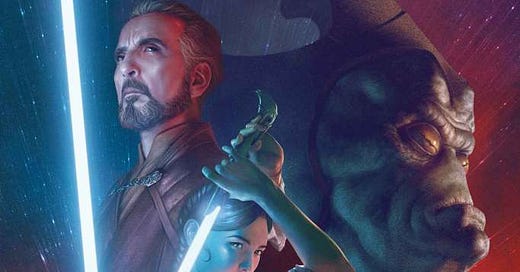


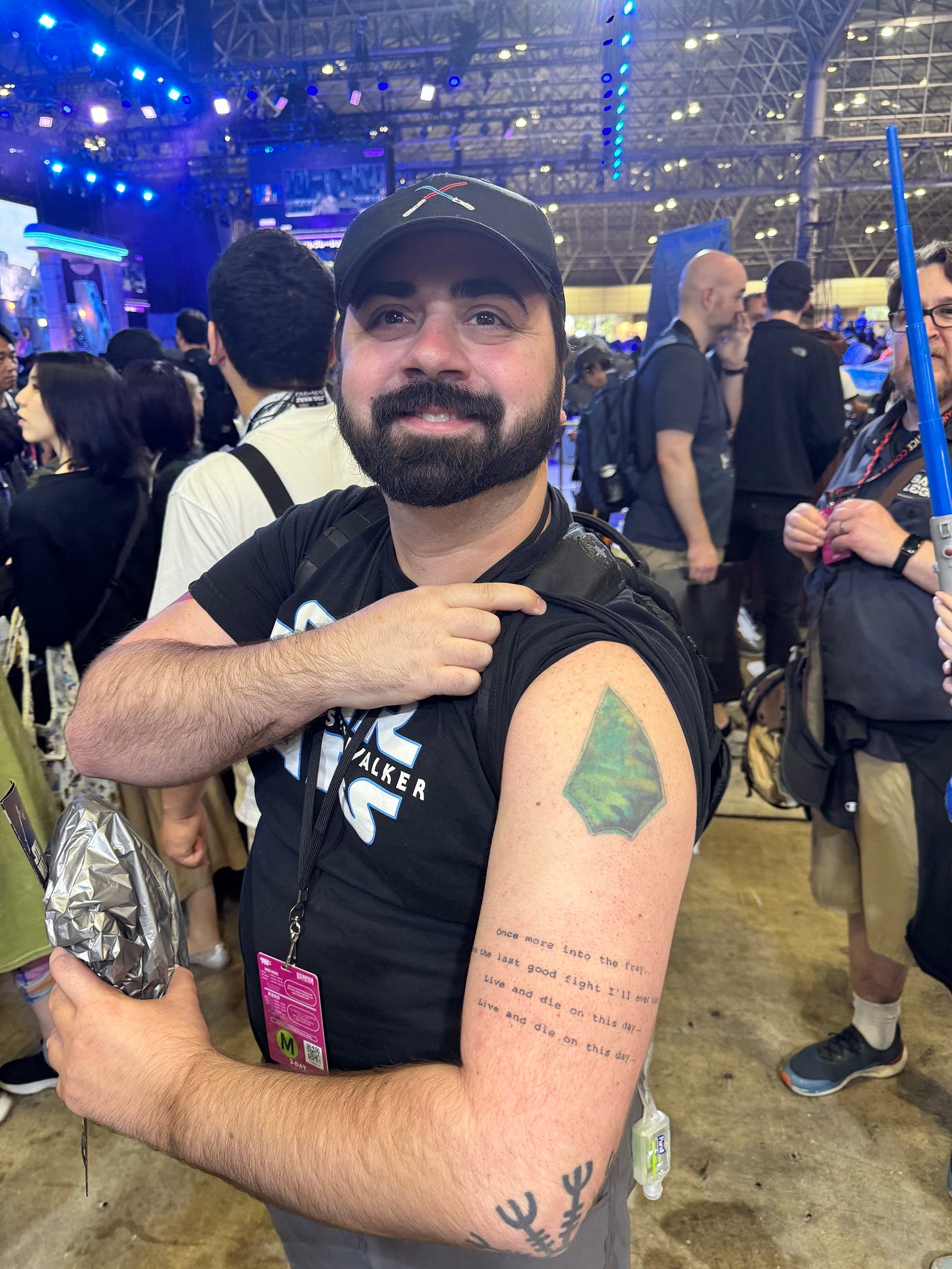
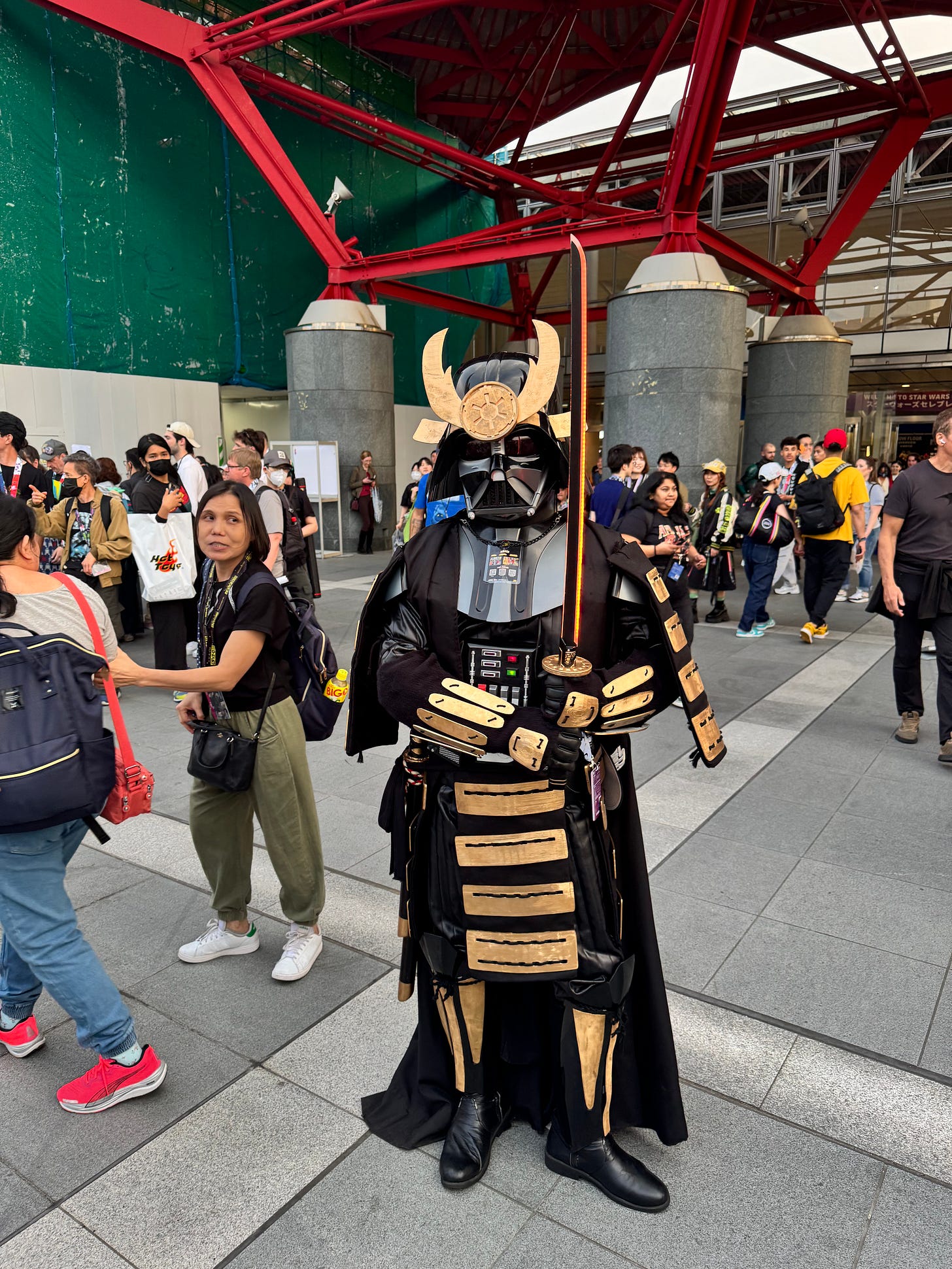
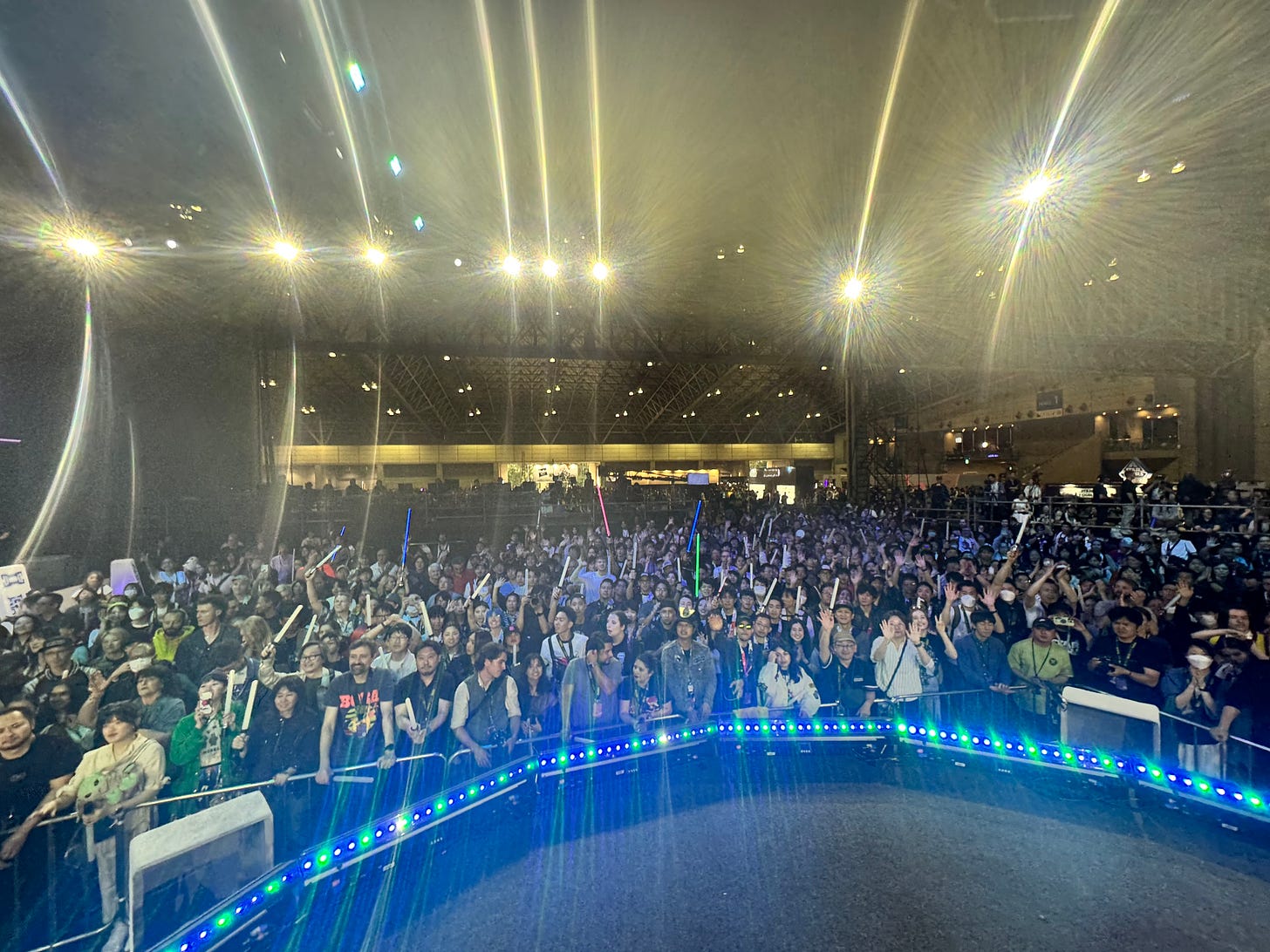
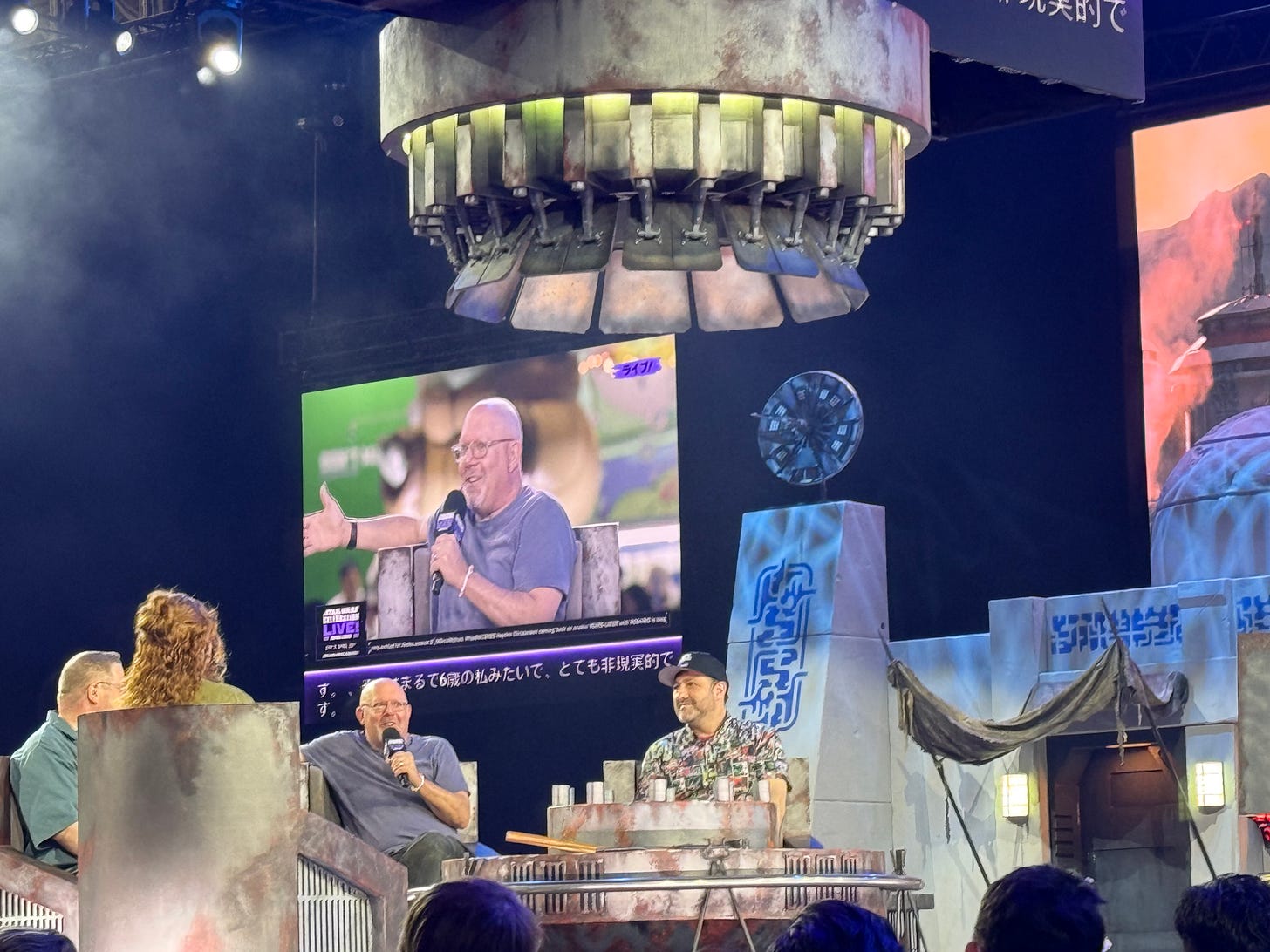
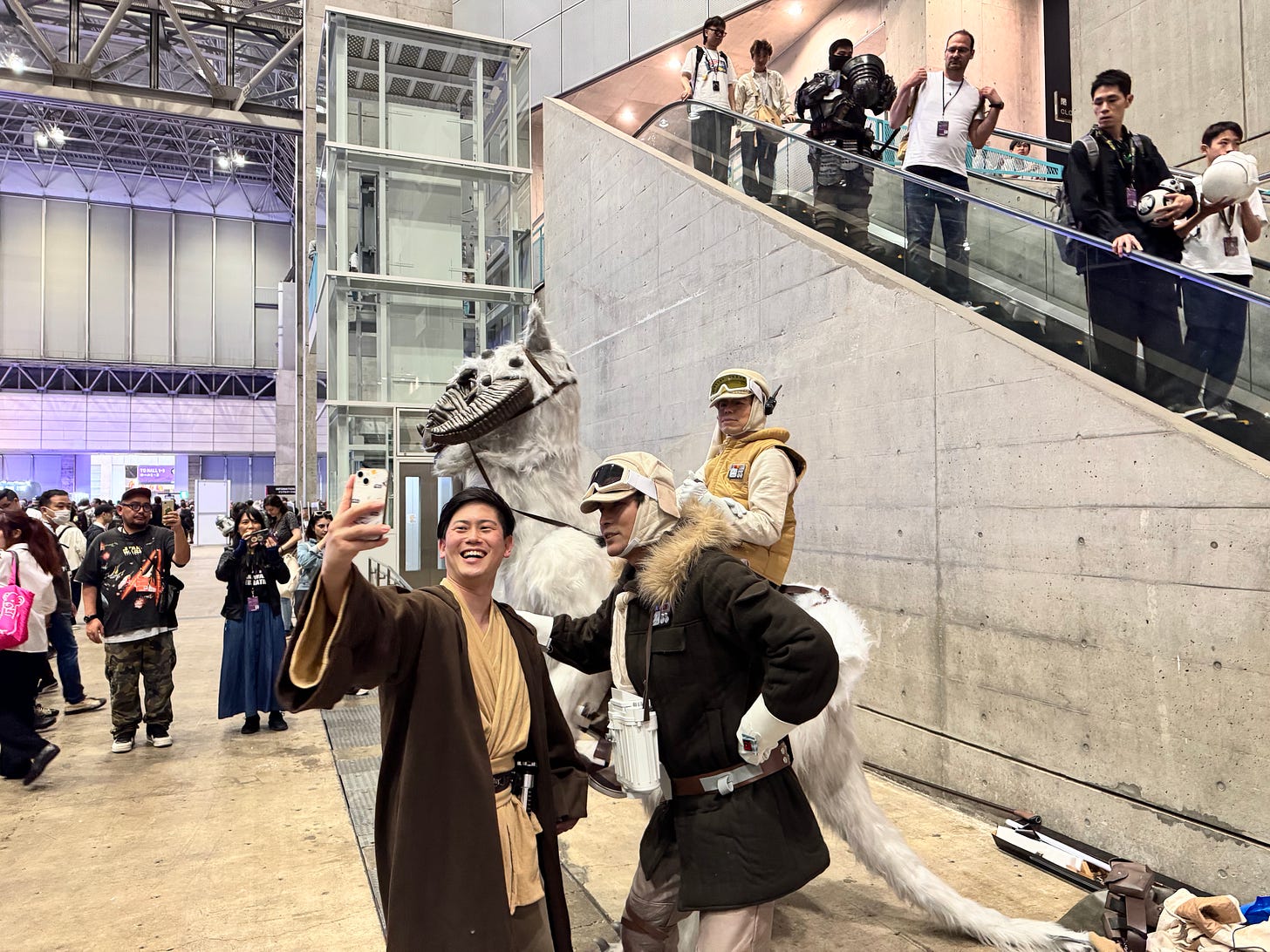
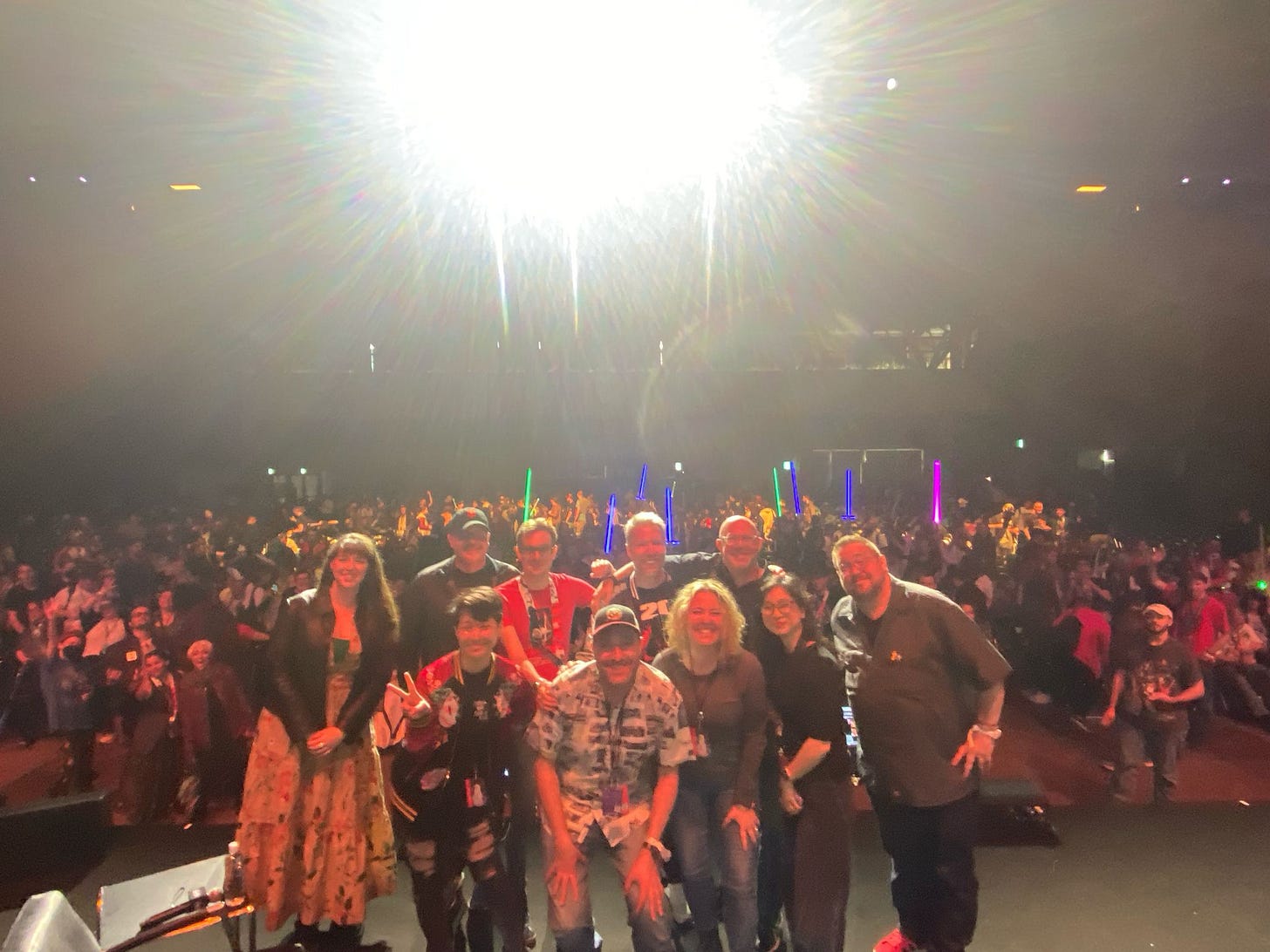
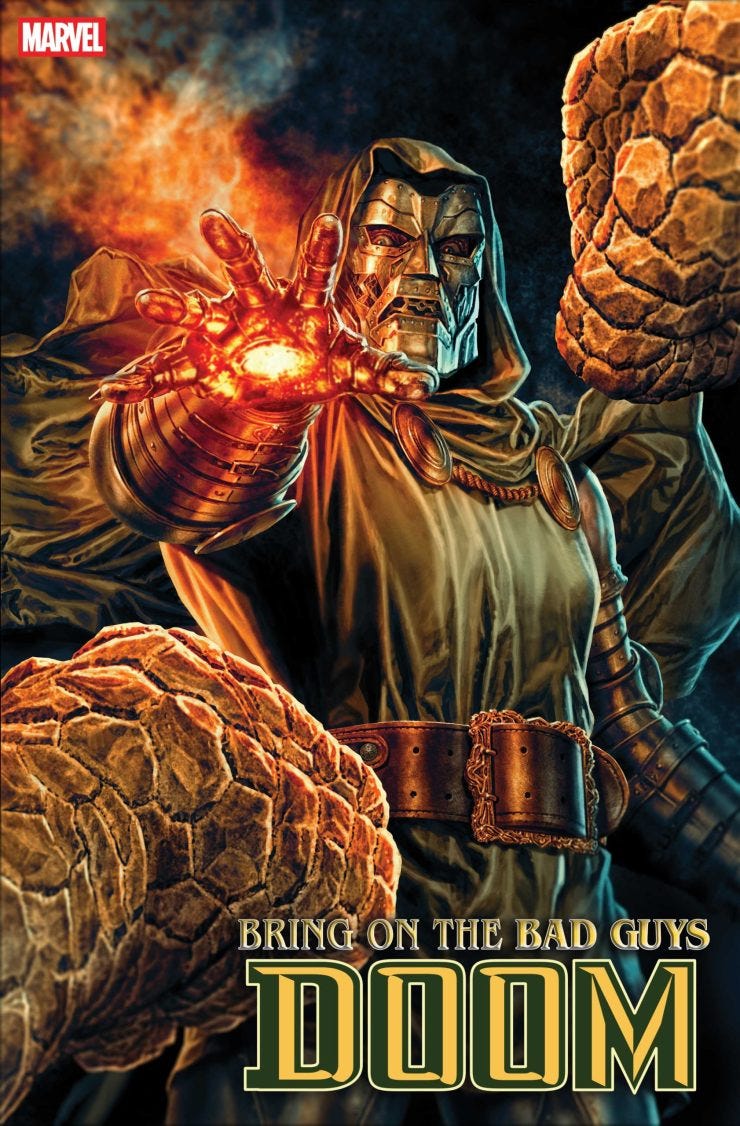
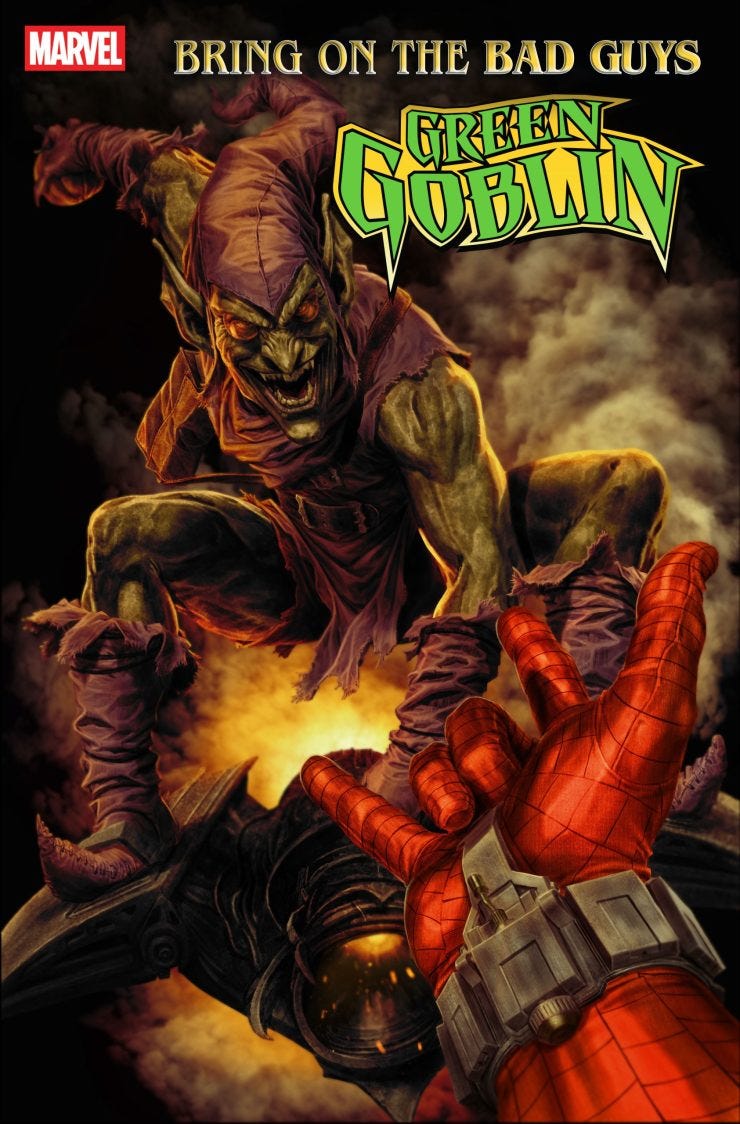
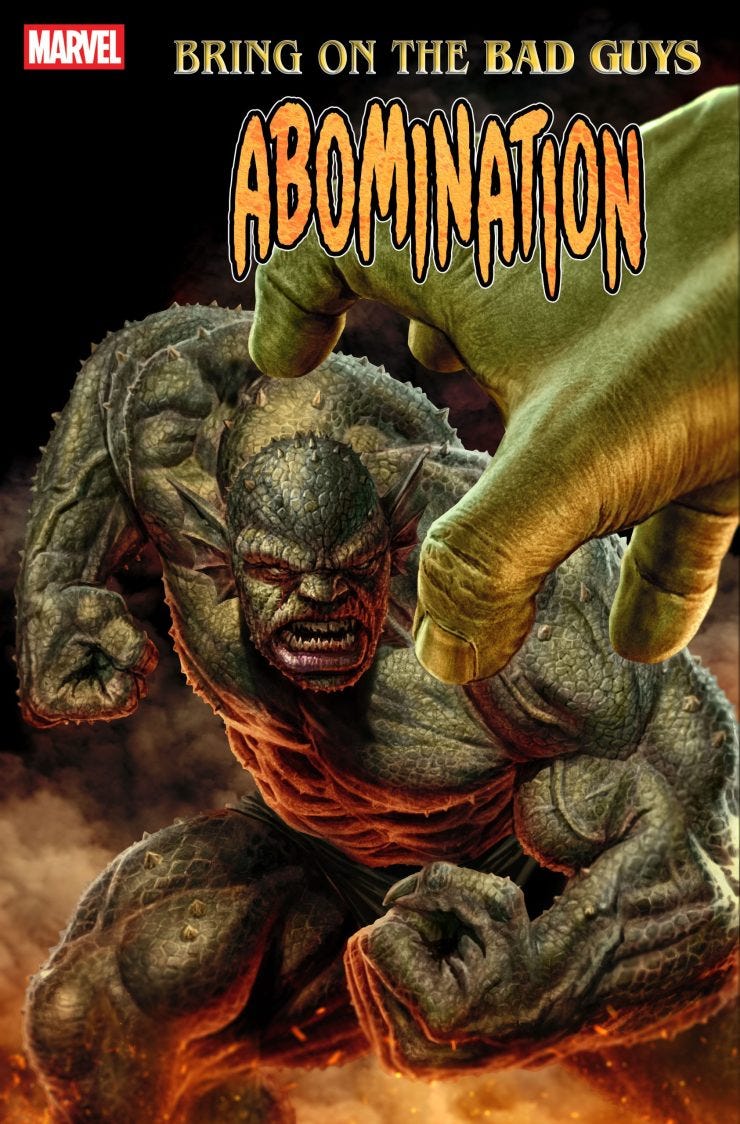

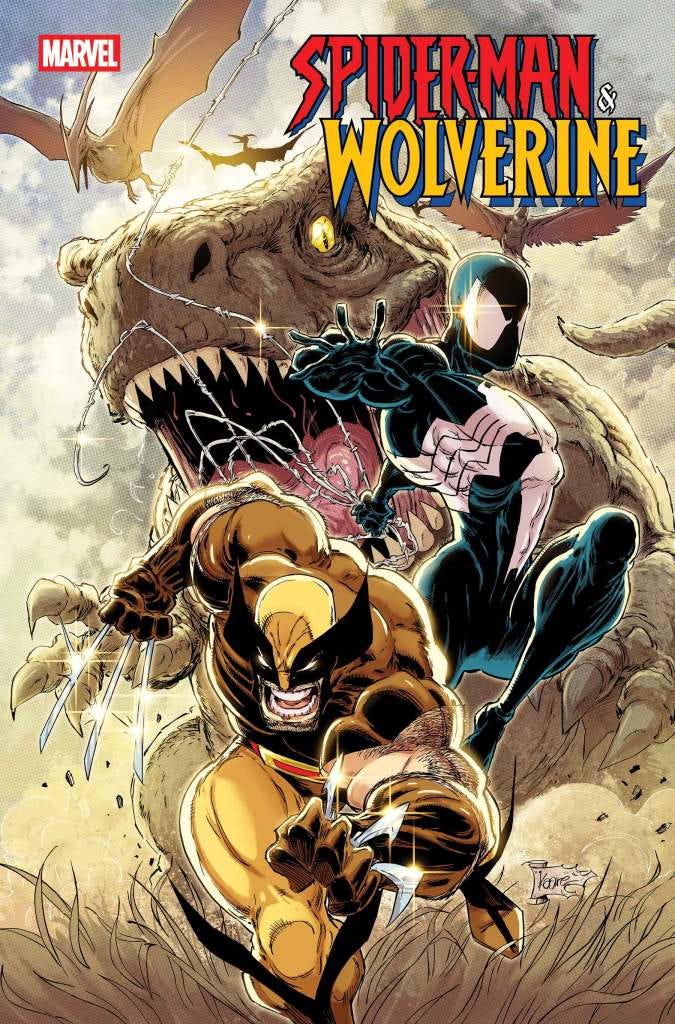

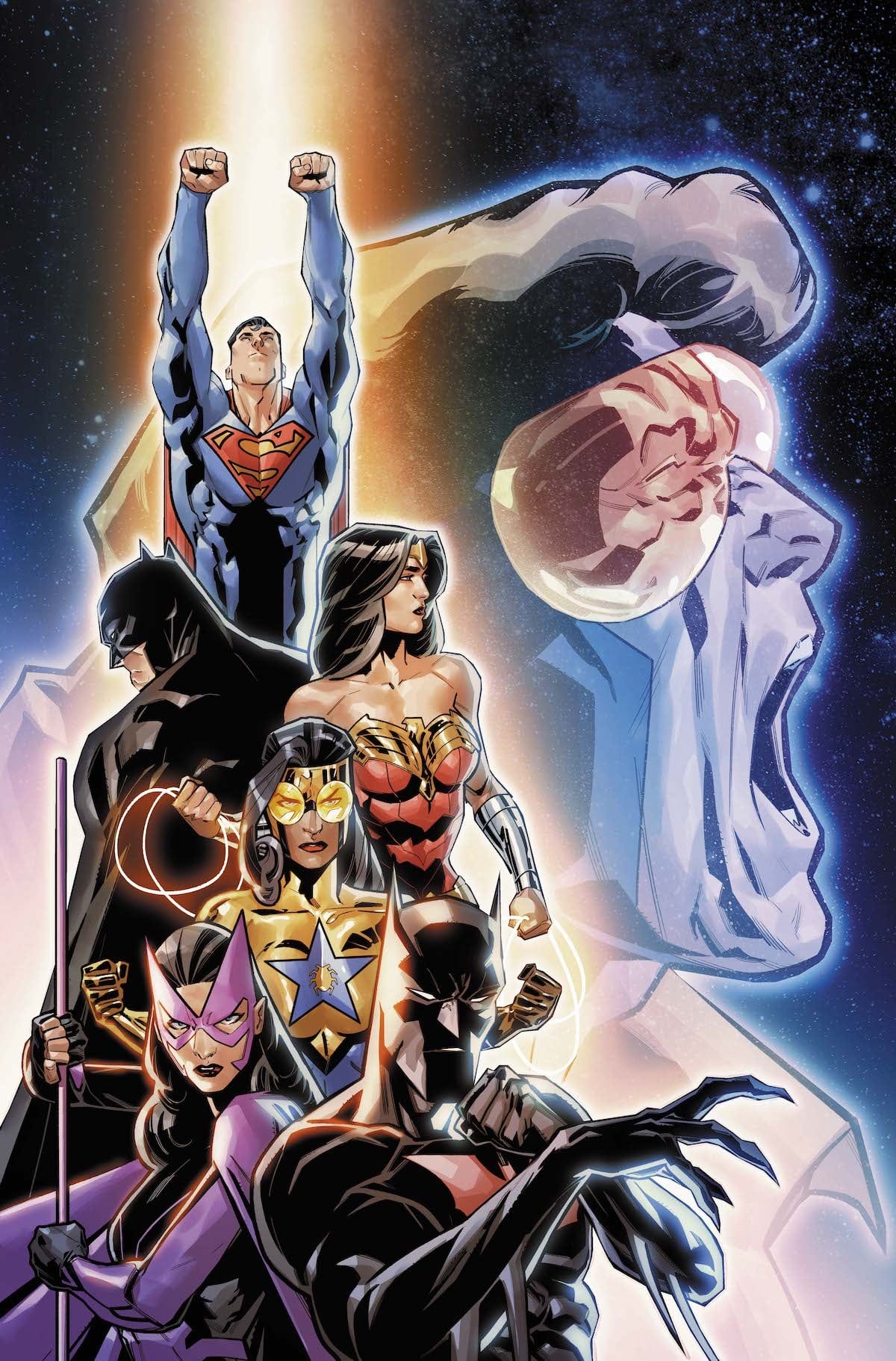
You clearly don’t understand the amount of work a writers’ assistant or script coordinator does. So a job that already runs 14-16 hour days and often means very late nights and weekends should have more duties and responsibilities added to it? Shows that already do this don’t pay those people more (or promote any faster). And they’re rarely “kids.” As someone who came up through this (broken) pipeline, almost all WAs and SCs I’ve worked with, met through unionization efforts or on the WGA strike picket lines (in total, a hundred or more) were 30s+. It already takes years to staff (7-10 for most drama writers) thanks to short orders, less overall pick ups, politics, and showrunners who dgaf about their support staff… Making those years more even more exploitative isn’t the answer.
おかいりい! (Welcome back!) The convention looks fun, glad you had a great time!
Per your suggestion about combining the script coordinator, writer's assistant, etc. jobs into one: I have heard from several assistants and former assistants that they would sometimes take on a combined job like that and it was too much work for one person. Is that true? Or is it doable to do all of that as one person?
And in your proposal, would that combined solo job combine the pay as well, so the assistant would have a livable wage? (Because that makes so much more sense and reasonable! One of the reasons I can never go the assistant route is the low pay. I can't imagine many folks who are changing careers mid-life or folks with financial responsibilities, can afford to take a full time + overtime job at barely minimum wage. If combining means 1) a reasonable wage and 2) a solid opportunity to move up to staff writer eventually... yeah I think that seems like a great idea.)